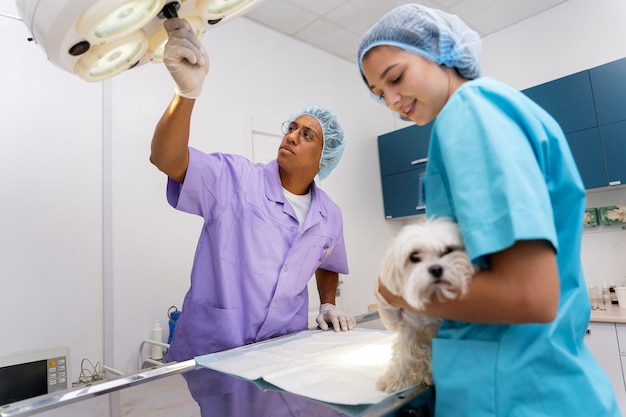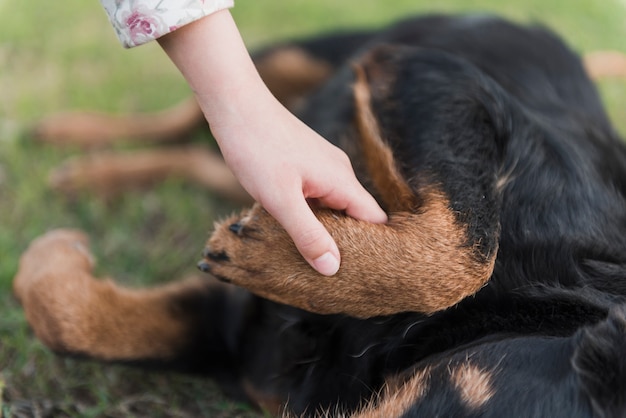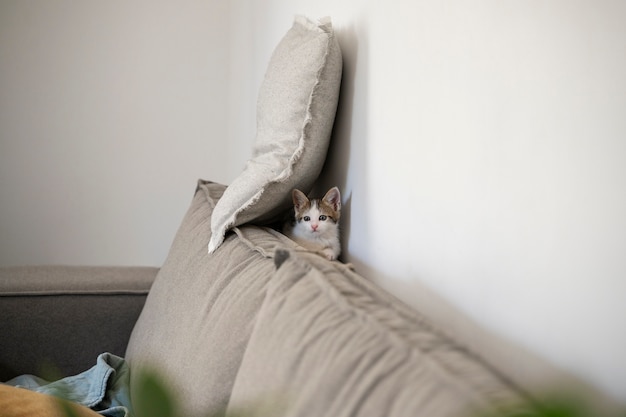Everything You Need to Know About Pet Gastropexy Surgery


Everything You Need to Know About Pet Gastropexy Surgery
When you love a dog with a deep chest—such as a Great Dane, Doberman Pinscher, or Standard Poodle—you may have heard about the risks of gastric dilatation-volvulus (GDV), or "bloat." This life-threatening emergency can occur suddenly and requires rapid veterinary intervention. Fortunately, preventive gastropexy surgery for dogs offers a highly effective way to protect at-risk pets from this dangerous condition. At Gully Animal Hospital of Grand Prairie, our experienced veterinary team is dedicated to helping families in Grand Prairie and surrounding communities make informed decisions about their pets' long-term health. In this comprehensive guide, you'll discover what gastropexy surgery involves, how it helps with dog stomach torsion prevention, what to expect during recovery, and why scheduling a consultation with our veterinary professionals can give you peace of mind.
If you're searching for a trusted vet near me or want to learn more about gastropexy surgery services in Grand Prairie, this article will answer your most pressing questions and help you decide if this preventive procedure is right for your dog. Our team is here to support you and your pet through every stage of their healthcare journey.
Recognizing the Risk: Signs of Gastric Dilatation-Volvulus (GDV) in Dogs
Understanding the urgency of GDV is crucial for any dog owner, especially those with breeds prone to this condition. GDV occurs when the stomach fills with gas and twists on itself, cutting off blood supply and causing rapid, severe symptoms. Recognizing the early signs can save lives. Common symptoms include a sudden, distended abdomen that feels tight to the touch, repeated retching or attempts to vomit without producing anything, drooling more than usual, restlessness, and signs of pain such as whining or pacing. As the condition progresses, dogs may collapse, struggle to breathe, or show pale gums—these are indicators of a medical emergency.
If you ever notice these symptoms in your pet, immediate veterinary attention is critical. While GDV can strike quickly and without warning, knowing the signs and seeking emergency care promptly can make all the difference. For those living in Grand Prairie and nearby areas, having access to emergency veterinary care is essential; however, prevention is always preferable when possible.
Why Does GDV Happen? Understanding the Causes and At-Risk Breeds
Dog stomach torsion prevention starts with understanding which pets are most susceptible and why. GDV primarily affects large, deep-chested breeds, including German Shepherds, Boxers, and Weimaraners, but it can occur in any dog. Factors contributing to the risk include genetics, anatomy, eating habits, and stress. Dogs that eat rapidly, consume large meals, or exercise vigorously right after eating may have an increased risk. Additionally, advancing age can elevate susceptibility, as older dogs may have weaker stomach ligaments.
The exact cause of GDV remains a subject of research, but what is clear is that certain physical traits—like a chest that is deeper than it is wide—make some dogs more vulnerable. Owners living in Grand Prairie and surrounding communities often ask about ways to minimize these risks, especially if they have a breed known for GDV. This is where gastropexy surgery for dogs becomes a proactive and potentially life-saving option.
What Is Gastropexy Surgery for Dogs and How Does It Prevent Stomach Torsion?
Gastropexy surgery is a preventive procedure where the veterinarian permanently attaches the stomach to the abdominal wall, helping to prevent it from twisting. This surgery does not prevent bloat—the initial filling of the stomach with gas—but it does prevent the more dangerous torsion aspect that leads to life-threatening complications. At Gully Animal Hospital of Grand Prairie, our veterinary professionals often recommend gastropexy for at-risk breeds, either as a standalone procedure or at the time of another surgery such as spaying or neutering, which can minimize anesthesia risks and recovery time.
The surgical approach involves making a small incision and using specialized techniques to secure the stomach in place. Our team uses advanced equipment and monitoring to ensure your pet’s safety and comfort throughout the process. Recovery from gastropexy is generally straightforward, with most dogs returning to their normal activities within a few weeks. During the recovery period, you will receive detailed home care instructions, including guidance on feeding, exercise limitations, and monitoring for any complications.
If you are considering abdominal surgery in Grand Prairie for your pet, our veterinarians are available to answer your questions and provide personalized recommendations based on your dog’s unique risk factors and health status.
What to Expect During and After Gastropexy Surgery
Many pet owners feel anxious about surgery, even when it is preventive. Rest assured, our team will walk you through each step. Pre-surgical bloodwork and examinations ensure your dog is healthy enough for anesthesia. The surgery itself typically takes about one to two hours, depending on whether it's combined with other procedures. After the surgery, your pet will be monitored closely as they wake up from anesthesia. Most dogs can return home the same day or after a short hospital stay.
Postoperative care includes pain management, restricted activity, and gradual reintroduction of food and water. Your dog may wear an Elizabethan collar to prevent licking the incision. Our veterinarians will schedule follow-up visits to monitor healing and answer any questions you may have. It’s common for dogs to resume their normal routines within two to three weeks, although every pet is unique and recovery times can vary.
Taking Steps at Home: Prevention and Ongoing Care
While gastropexy surgery for dogs offers effective dog stomach torsion prevention, there are additional measures you can take at home to support your pet's digestive health. Feeding smaller, more frequent meals instead of one large meal per day can reduce the risk of bloat. Using slow-feeder bowls may help dogs who tend to eat too quickly. Avoiding vigorous exercise immediately before and after meals is also beneficial. For owners in Grand Prairie seeking comprehensive preventive care, routine wellness visits with our veterinary team are an important part of monitoring your dog's ongoing health.
It’s also wise to stay informed about canine first aid and to have emergency contact information readily available. Understanding your breed’s specific risk factors and discussing preventive options such as gastropexy with a veterinarian near me can provide peace of mind. Our clinic is committed to partnering with you for your dog’s lifetime wellness.
When Should You Seek Veterinary Care for GDV or to Discuss Gastropexy?
Prompt veterinary attention is vital if you notice any signs of GDV. Even a few minutes can make a critical difference in outcomes, so do not wait if your dog shows symptoms like a swollen abdomen, retching, or collapse. For prevention, scheduling a consultation to discuss gastropexy is especially important if your dog belongs to a high-risk breed or has a family history of GDV.
If you are unsure whether your pet could benefit from gastropexy surgery, our team at Gully Animal Hospital of Grand Prairie is here to help you weigh the pros and cons. We encourage you to reach out for guidance on dog stomach torsion prevention and other surgical options tailored to your pet’s health needs. Our surgery services page provides additional information about procedures we offer, and our veterinary professionals are available for appointments to discuss your concerns in depth.
Protecting Your Dog’s Future: Schedule a Consultation with Gully Animal Hospital of Grand Prairie
The risk of GDV can be frightening, but proactive steps like gastropexy surgery for dogs empower you to protect your beloved companion. Our compassionate veterinarians understand the bond you share with your pet and are dedicated to providing expert guidance and advanced surgical care. Whether you are seeking more information about dog stomach torsion prevention in Grand Prairie or ready to schedule a preventive procedure, our team is here to support you every step of the way.
If you’re searching for a vet near me who offers preventive surgery and comprehensive care, look no further than Gully Animal Hospital of Grand Prairie. We invite you to contact our veterinary team to discuss gastropexy surgery services in Grand Prairie, schedule an appointment, or ask about our full range of surgery options. Call us at (214) 412-2462 or visit us at 2942 West Camp Wisdom Rd, Grand Prairie, TX 75052 to learn how we can help your pet live a longer, healthier life. Your pet’s well-being is our top priority, and our veterinary professionals are proud to be a trusted resource for dog stomach torsion prevention and advanced veterinary surgery in Grand Prairie and surrounding communities.
This article is intended for informational purposes only and should not be used as a substitute for professional veterinary advice. Always consult with your veterinarian for concerns specific to your pet’s health.



















